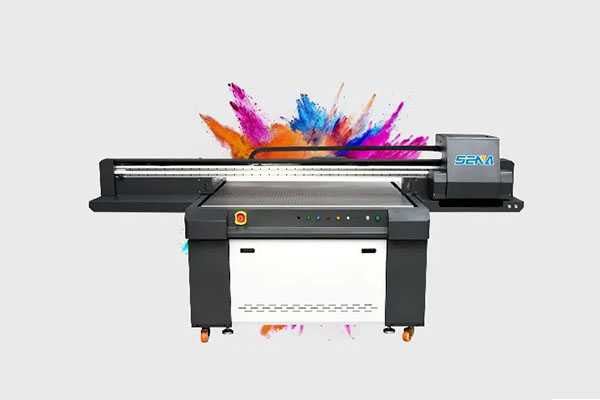Avoid your inquiry is delay response, please enter your WhatsApp/WeChat/Skype along with the message, so we can contact you at the very first time
We will reply you within 24 hours. If for urgent case, please add WhatsApp: +8617888313102, or WeChat: +86 17864107808. Or call +86 17864107808 directly.
*We respect your confidentiality and all information are protected. We will only use your information to respond to your inquiry and will never send unsolicited emails or promotional messages.
Are you frustrated by unclear printing methods and wasted materials? You want a reliable way to print vibrant designs, I found a solution worth exploring,Sena Printing Group UV flatbed printers,excel in producing vibrant, high-quality prints for diverse applications
First of all, before understanding Sena UV flatbed printers, let’s solve a question: What is an UV printing machine? It is a specialized printer that uses ultraviolet light to cure ink as it prints. This process helps produce crisp images and vibrant colors on many surfaces.

UV printing machine
Many people wonder how this technology changes their printing workflow. I believe the advantages of UV printing go beyond simple color quality. This article explains its details. I will share why it is popular in various industries. I will also share how I use this machine for professional printing projects.
Are you stuck with slow drying times that ruin your final prints? You need a faster system. I discovered how UV curing technology solves that problem.
What is the principle of UV machine? It uses UV lamps or LEDs to cure liquid ink immediately. This prevents smudging and gives a consistent finish. The secret is the photochemical reaction1 that hardens the ink as soon as it contacts the surface.
To understand the principle of a UV machine, I start by looking at the printhead. The printhead releases small droplets of UV-curable ink. Right behind the printhead, there is a UV lamp or LED array. That lamp instantly hardens the ink once it lands on the surface. This is different from traditional printing because it does not require extra drying time. I see how it prevents smudging, even on materials like plastic or metal.
The UV light triggers a photochemical reaction in the ink. This makes the ink harden within seconds. I do not worry about solvents evaporating because the ink cures right away. I find that this method increases production speed. It also produces sharp lines and bright colors. I noticed that this process does not create strong odors or harmful emissions. That is helpful in controlled work environments.
I break down the main parts into a few key items. The printhead spreads ink in tiny droplets. The UV lamp or LED array cures that ink. The bed or conveyor moves the material into place. The control system syncs all these actions. I value the precise alignment. It ensures consistent printing results.
Below is a simple table showing a few key components and what they do:
| Component | Function |
|---|---|
| UV Lamp | Provides the light that cures the ink |
| LED Array | Alternative curing option, uses less energy |
| Printhead | Distributes the ink on the material |
| Ink Reservoir | Holds UV-curable ink before printing |
I consider this setup essential for high-quality prints. I see that the principle of UV machines rests on fast, efficient curing. It provides steady color, sharper details, and less waiting time. In my own work, I rely on this method to handle complex packaging materials. I get consistent results and fewer production delays.
Do you struggle with different materials that need vivid and durable prints? You want a single printer for wood, plastic, and metal. That is where a UV machine helps.
What is a UV machine used for? It prints on many materials, including metal, glass, plastic, and cardboard. This makes it popular for signage, packaging, and promotional items. The UV-curing ink bonds well and dries instantly, which reduces production time and increases overall quality.

UV usage
In my packaging projects, I often print custom designs on a variety of surfaces. I rely on UV machines to handle bright logos on plastic boxes or metal tins. This technology lets me print on materials with uneven surfaces. The UV ink clings to these substrates and forms a stable layer. This broad compatibility saves me from investing in multiple printers. I simply adjust a few settings, and the same machine can print on wood, acrylic, or cardboard.
I see UV machines used in signage, promotional items, and industrial prototypes. Some businesses customize phone cases, while others print vibrant wall art. I also see creative individuals who use UV printers to produce small runs of personalized gifts. I like how the ink remains resistant to fading. This is important for outdoor signs or packaging that faces bright light.

I appreciate Sena UV flatbed printers. because Sena Printing Group offers UV flatbed printers2 in a range of sizes, expertly designed to achieve an ideal balance of speed and precision, ensuring high-quality detail without sacrificing productivity. When I print large orders, I do not need to wait long for drying. I can stack or ship items faster. This cuts down on storage space for half-finished prints. Also, the adhesion is strong. I do not see the ink flaking off or smearing. The prints stay crisp and sharp.
I built my workflow around these advantages. I handle short runs or large batches with the same machine. This versatility makes UV machines a good investment. I do not switch between different printers or inks. I use a single device that meets my needs. I believe that wide material compatibility3 and fast curing make UV machines popular for packaging, advertising, and customized products.
UV printing machines change how I handle professional printing. They speed up production and deliver consistent quality. I see them as a reliable partner for my business.